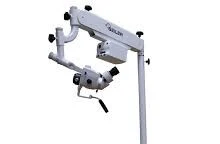Vaginal ‘Rejuvenation’ Treatments could also be Unsafe, the
F.D.A. Says
WASHINGTON — The Food and Drug Administration on Monday
announced that it had warned several companies to prevent marketing laser
devices for procedures billed as “vaginal rejuvenation,” saying they were
dangerous and deceptive treatments.
The agency originally permitted the lasers and related
energy-based devices onto the marketplace for the treatment of great conditions,
like cancer, genital warts, or surgery including hysterectomies.
But in recent years, manufacturers are heavily promoting the
lasers for symptoms associated with vaginal atrophy, menopause, enuresis, and
sexual function. Cosmetic, spa treatments using laser and other products for
vaginal health have also become popular among younger ladies.
Some treatments use the devices to destroy or reshape
vaginal tissue, which the manufacturers say can solve some problems associated
with dryness or other ailments. The F.D.A. disagrees. But albeit the agency
originally approved the devices surely treatments, it's legal for doctors to
use them for off-label conditions.
The agency noted in one letter that a manufacturer, BTL
Industries were marketing a radiofrequency device, Exilis Ultra 360, as a
replacement approach to “women’s intimate health” albeit the merchandise had
only been approved by the F.D.A. for uses in dermatology like wrinkle
treatment, including the eyelids.
The F.D.A. described the company’s
“pelvic-suite” website, where the device was advertised as ready to build
collagen and elasticity for “female intimate parts,” and requested that the
corporate furnish documentation that it had been cleared to plug the
merchandise for such uses.
The agency posted copies of letters it sent to manufacturers
of the MonaLisa Touch, Femilift, Venus Fiore System, and other devices, telling
them to not promote the devices for the rejuvenation procedure.
“These products have serious risks and don’t have adequate
evidence to support their use for these purposes,” said Dr. Scott Gottlieb, the
F.D.A. commissioner.
“We are deeply concerned women are being harmed.”
Dr. Gottlieb also said he was concerned that deceptive
marketing of those devices might prevent some patients from getting appropriate
therapies for severe medical conditions.
The F.D.A. said the complete extent of the risks is unknown,
but that the agency has found cases of vaginal burns, scarring, and lasting
pain following the treatments.
The agency has received 14 reports of adverse
events associated with the treatments, including burning sensations and
significant pain.
The companies targeted by the F.D.A. were In mode; Sciton;
Alma Lasers; Thermigen; BTL Aesthetics, BTL Industries; Venus Concept and
Cynosure.
Some companies didn't immediately answer requests for comment.
Jane G. Mazur, a spokeswoman for Hologic, Inc. whose
subsidiary sells the MonaLisa Touch, said they were reviewing the F.D.A.
notice.
“We are evaluating the letter fully and can collaborate with
the agency to make sure all product communications adhere to regulatory
requirements,” Ms. Mazur said.
Domenic DiSisto, general counsel for Venus Concept, said the
Venus Fiore device isn't currently marketed or sold within the us, which the
corporate had modified its website.
The F.D.A.’s letters are considered a step in need of a
proper warning. The manufacturers are asked to supply details on the
merchandise and on what basis they're assuming approval.
The agency has been struggling to hurry up the approval of
medical devices.
Critics have said that the F.D.A. device approvals are already
going too fast and happening with insufficient oversight.
within the announcement Monday, Dr. Gottlieb said the agency would strengthen its studies
of devices after they need to be approved purchasable.
No agency or medical society has figures for the quantity of
those procedures are done per annum, but an off-the-cuff search through gynecology
practices show they're becoming prevalent — despite opposition from the
American College of Obstetricians and Gynecologists.
The medical society has issued several
statements noting that the devices, including the MonaLisa Touch, don't have
F.D.A. clearance or approval for treatment of menopausal symptoms, as
advertised.
“Obstetrician-gynecologists should be cognizant of the
evidence regarding innovative practices” and will be wary “of adopting new or
innovative approaches on the idea of promotions or marketing,” the school said.
Dr. Cheryl B. Iglesia, director of the section of female
pelvic medicine and plastic surgery at MedStar Washington Hospital Center said
the laser technology held promise, but that more study was needed to know the
security also as to which patients the devices might help.
“I think the F.D.A. is trying to be conservative,” she said.
“They don't want the marketing to be before the science on this.”
But some doctors already say the devices work well for his
or her off-label use.
During a testimonial on its website, Alma Laser featured
a video of Dr. Leslie Apgar, a Maryland gynecologist, who said she was pleased
with the Femilift, also because of the company’s assistance with marketing.
“With Alma, I used to be ready to get the Femilift system
that I wanted, alongside the marketing solution that included a replacement
website fully optimized for Google and every one the opposite search engines,”
Dr. Apgar said within the video.
“It has figured out extremely well on behalf
of me, as I even have gotten new patients weekly directed to my practice.”

0 comments:
Post a Comment